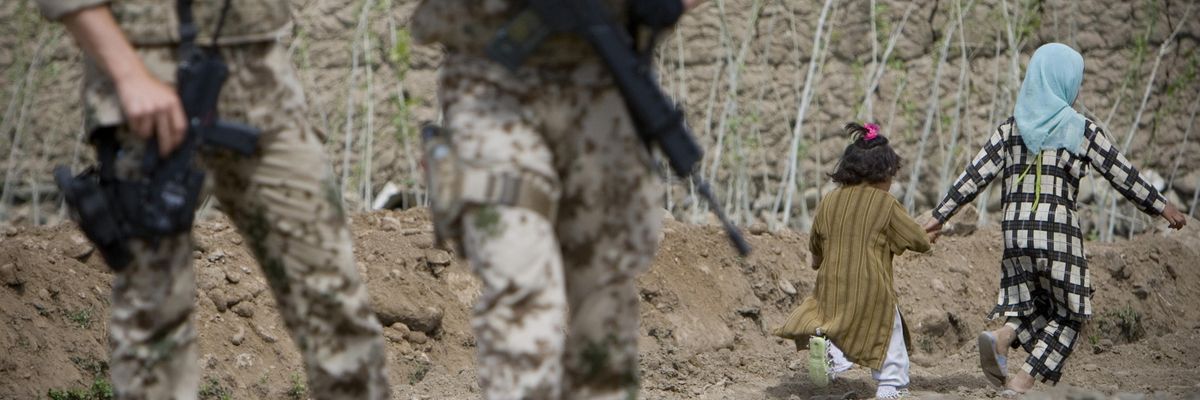Seventeen years after the 2001 U.S. invasion of Afghanistan and just a day after former president and "war criminal" George W. Bush was granted the National Constitution Center's "Liberty Medal" at a ceremony in Philadelphia, the Associated Press reports Tuesday on the anger and sorrow of the Afghan people who say that the Americans--despite early and repeated promises to liberate and modernize the country--"have made a hell, not a paradise" of their war-torn nation.
"All the money that has come to this country has gone to the people in power. The poor people didn't get anything," Hajji Akram, a day laborer in Kabul's Old City who struggles to feed his family on around $4 a day, told AP. "The foreigners are not making things better. They should go."
Hamid Karzai, the former president of Afghanistan who was installed by the U.S. during the early part of the occupation and later re-elelected, said that early vows to bring harmony to the region were broken and that, ultimately, U.S. officials "simply neglected the views of the Afghan people and the conditions of the Afghans." As the reporting notes, Karzai now blames the lingering war on broken promises and endless U.S. failures.
The comments and despair out of Afghanistan come less than a week after the Cost of War project at Brown University published its latest estimate (pdf) of the number of people killed in America's so-called "Global War on Terror" since it began in the fall of 2001:
Hamidullah Nasrat, who sells imported fabrics in Kabul's main bazaar, said he was happy to see the Taliban defeated in 2001, but said now life is even more terrible than before.
"After the Taliban we were expecting something good, but instead, day by day, it is getting worse," Nasrat said. "How is it that a superpower like the United States cannot stop the Taliban? It is a question every Afghan is asking."




